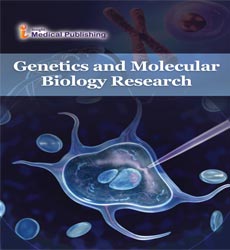Reproductive Anamnesis of Women's Cohort with Turner Syndrome from Lviv Region (West Ukraine)
All women carrying the diagnosis of Turner syndrome are at risk during pregnancy, and there is no distinction between those with 45, X karyotypes and those with partial X chromosome deletions or mosaic karyotypes. Methods: 68 women with Turner syndrome aged 18-44 from the Lviv region (Ukraine) who had problems with the start, the duration of menstruation, or infertility were obtained by face-to-face interview or assessment of hospital medical records (1997- 2018). Results: In this cohort prevailed amenorrhea or irregular menses, short and broad neck, absence of hair growth on the body, cubitus valgus, delayed puberty, pectus excavatum, mitral valve prolapse, hypertension, thyroid dysfunction (hypothyroidism). These patients had short stature with a median adult height of 153 cm (126-167) and primary amenorrhoea in the majority of cases. Among 68 adolescent patients, only 20 (29.4%) had spontaneous menarche. Conclusion: Among these women only two (2.9%) women with Turner syndrome from this cohort have been observed for reproductive history due to pregnancy. The five infants were non-dysmorphic and without chromosomal anomalies. All women carrying the diagnosis of Turner syndrome are at risk during pregnancy, and there is no distinction between those with 45, X karyotypes and those with partial X chromosome deletions or mosaic karyotypes. Consultation with specialists in cardiovascular disease, endocrinology, and high-risk obstetrics is required to ensure the best chance for a successful pregnancy and delivery of a healthy infant. Pregnancies in women with Turner syndrome are more likely to be complicated by thyroid dysfunction, obesity, diabetes, and hypertensive disorders, including pre-eclampsia (up to 40%). Low birth weight, intrauterine growth restriction, preterm labor, and preterm delivery are also more likely in pregnancies in women with TS. the prevalence of spontaneous pregnancies in this French cohort was 5.6%. there were 18 patients (3.8%) who had at least one live-born child. Women were obtained by face-to-face interview or assessment of hospital medical records. All patients were assessed with physical examination and underwent a set of diagnostic tests including general clinical tests, and abdominal ultrasonography. We considered the following data for each patient: Age at diagnosis of TS, age at the time of the study, height and weight for review time, medical history, and karyotype. Clinical history was recorded. Reproductive history was collected; Occurrence and age of spontaneous menarche, age at pregnancy, the outcome of spontaneous pregnancies including maternal and fetal complications.
Abstract
All women carrying the diagnosis of Turner syndrome are at risk during pregnancy, and there is no distinction between those with 45, X karyotypes and those with partial X chromosome deletions or mosaic karyotypes. Methods: 68 women with Turner syndrome aged 18-44 from the Lviv region (Ukraine) who had problems with the start, the duration of menstruation, or infertility were obtained by face-to-face interview or assessment of hospital medical records (1997- 2018). Results: In this cohort prevailed amenorrhea or irregular menses, short and broad neck, absence of hair growth on the body, cubitus valgus, delayed puberty, pectus excavatum, mitral valve prolapse, hypertension, thyroid dysfunction (hypothyroidism). These patients had short stature with a median adult height of 153 cm (126-167) and primary amenorrhoea in the majority of cases. Among 68 adolescent patients, only 20 (29.4%) had spontaneous menarche. Conclusion: Among these women only two (2.9%) women with Turner syndrome from this cohort have been observed for reproductive history due to pregnancy. The five infants were non-dysmorphic and without chromosomal anomalies. All women carrying the diagnosis of Turner syndrome are at risk during pregnancy, and there is no distinction between those with 45, X karyotypes and those with partial X chromosome deletions or mosaic karyotypes. Consultation with specialists in cardiovascular disease, endocrinology, and high-risk obstetrics is required to ensure the best chance for a successful pregnancy and delivery of a healthy infant. Pregnancies in women with Turner syndrome are more likely to be complicated by thyroid dysfunction, obesity, diabetes, and hypertensive disorders, including pre-eclampsia (up to 40%). Low birth weight, intrauterine growth restriction, preterm labor, and preterm delivery are also more likely in pregnancies in women with TS. the prevalence of spontaneous pregnancies in this French cohort was 5.6%. there were 18 patients (3.8%) who had at least one live-born child. Women were obtained by face-to-face interview or assessment of hospital medical records. All patients were assessed with physical examination and underwent a set of diagnostic tests including general clinical tests, and abdominal ultrasonography. We considered the following data for each patient: Age at diagnosis of TS, age at the time of the study, height and weight for review time, medical history, and karyotype. Clinical history was recorded. Reproductive history was collected; Occurrence and age of spontaneous menarche, age at pregnancy, the outcome of spontaneous pregnancies including maternal and fetal complications.
Open Access Journals
- Aquaculture & Veterinary Science
- Chemistry & Chemical Sciences
- Clinical Sciences
- Engineering
- General Science
- Genetics & Molecular Biology
- Health Care & Nursing
- Immunology & Microbiology
- Materials Science
- Mathematics & Physics
- Medical Sciences
- Neurology & Psychiatry
- Oncology & Cancer Science
- Pharmaceutical Sciences
